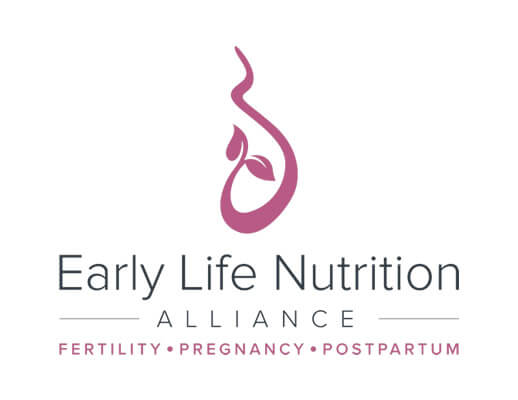Unveiling the Power of Men's Health in Fertility
Becoming a dad is an exciting journey, and it starts long before conception. Your health as a man, plays a big role in fertility and the future health of your children. While fertility discussions often focus on women, men's preconception health is equally important. As a dietitian specialising in the first 1000 days of life, my focus is on practical nutrition and lifestyle strategies to help improve your fertility, laying a strong foundation for a healthy pregnancy for your partner and baby.
Nurturing Your Fertility for a Healthy Family Future
Did you know that your health before conception is just as crucial for pregnancy as it is for the long-term well-being of your future children? It's a common misconception that fertility issues primarily concern women, but in reality, men are responsible for 40 - 50% of all fertility challenges. Research underscores the significant impact of what we eat and drink on sperm quality, which in turn influences fertility.
Nutritional deficiencies can lead to a lower sperm count or reduced motility, while habits like smoking or excessive alcohol consumption can damage sperm DNA. But men's reproductive health isn't only about improving fertility; it's about ensuring the future health of your children as well. Scientific studies show that a dads health at conception can affect the risk of various conditions in the child, including congenital anomalies, neonatal complications, and even long-term issues like heart disease or diabetes.
As a dietitian, I always emphasise the importance of seeing nutritional and lifestyle changes as key pieces of a bigger puzzle when it comes to fertility issues.
When we talk about reproductive health, it's important to understand that everyone is different and Your nutritional needs and hormonal balance are unique to you. That's why personalised advice on improving your food quality and lifestyle is so important to help you find the right balance for your body.
Simple Steps to Boost Your Fertility Potential
Improving sperm quality is a crucial aspect of enhancing male fertility.
Research has shown that men who have a higher count of normal sperm tend to eat more fruits, vegetables, seafood, whole grains, legumes and low-fat dairy products, and they eat fewer processed and red meats, refined grains and sugary drinks.
There are several nutrition and lifestyle steps or strategies that can be adopted to positively influence sperm health.
These include:
- Antioxidant-Rich Foods:These can help protect sperm from oxidative stress. Foods like berries, nuts, green leafy vegetables, and whole grains are excellent sources.
- Balanced Macronutrients: Ensuring a balance of lean proteins, healthy fats, and fibre-rich carbohydrates is vital for supporting hormonal balance and overall sperm health.
- Limit Ultra-Processed Foods: Highly processed foods often contain trans fats, are high in saturated fat, salt and added sugars, which can negatively impact overall health and, by extension, sperm quality.
Lifestyle Modifications
- Regular Exercise: Moderate and regular physical activity can boost testosterone levels and improve fertility. However, excessive exercise or high-intensity training might have the opposite effect.
- Maintain a Healthy Weight: Obesity has been linked to reduced sperm count and motility. Achieving and maintaining a healthy weight can improve these factors.
- Limit Alcohol and Quit Smoking: Both alcohol and tobacco have been shown to reduce sperm quality. Reducing alcohol intake and quitting smoking can have a positive impact on fertility.
- Stress Management: Chronic stress can affect hormonal balance and sperm production. Practices like mindfulness, yoga, and adequate sleep can help manage stress levels.
Key Nutrients and Supplements for Male Fertility
Fueling Your Fertility Journey
So the choices you make regarding what you eat and drink as well as your lifestyle can significantly impact your fertility. Making quality and nutrient rich food choices isn't just about overall health and wellness; it can profoundly affect sperm quality. The right combination of additional key vitamins and minerals from supplements can play a crucial role in filling nutrient gaps and deficiencies while enhancing reproductive health and fertility outcomes in men.
Optimising your intake of the following key nutrients will support your journey towards improved fertility.
- Vitamin B12: Essential for sperm production and motility, Vitamin B12 can impact sperm count and mobility. Sources include fish, meat, poultry, eggs, dairy, and, for those on plant-based diets, fortified foods or B12 supplements.
- Vitamin E (Alpha-tocopherol): Known for its antioxidant properties, Vitamin E helps protect sperm cells from oxidative damage, improving sperm motility and integrity. Found in nuts, seeds, vegetable oils, and as a supplement, it's crucial for those facing fertility challenges.
- Vitamin C: This antioxidant is vital for protecting sperm DNA from oxidative stress and enhancing sperm count and motility. It's abundant in citrus and kiwi fruits, tomatoes, capsicums, potatoes and green vegetables.
- Zinc: Important for testosterone production and sperm formation and motility, zinc deficiency can affect fertility. Lean meats, seafood, nuts, and seeds are excellent sources.
- Omega-3 Fatty Acids: Essential for improving sperm membrane fluidity and overall quality, Omega-3s can be found in fish oil, flaxseed, and supplements, benefiting those with low dietary intake.
- Selenium: This mineral plays a key role in sperm formation and testosterone production. Selenium-rich foods include Brazil nuts, seafood, and meats. Supplementation may be considered if dietary intake is insufficient.
- Vitamin D: Linked to higher testosterone levels and improved sperm motility, Vitamin D can be obtained from sunlight exposure, fortified foods, eggs, mushrooms and supplements.
The Role of Supplements
Supplements can enhance nutrient levels and optimise nutrition obtained from food by closing potential gaps in order to increase sperm concentration, motility, and quality and reduce oxidative stress. However, it's crucial to consult with a qualified dietitian before starting any supplement regimen to avoid over-supplementation and potential interactions with other medications as well as obtaining quality products.
Preconception Health Checklist for Men
Creating a baby is a team effort. As a soon-to-be dad, there are a number of steps you can take to support your partner in having a healthy pregnancy and baby.
We have put together a comprehensive checklist that focuses on key lifestyle areas to ensure you are at your optimal health when trying to conceive. Since the process of producing new sperm takes around three months, it's a good idea to begin addressing these factors well in advance.
By following this checklist, you can significantly improve your preconception health, setting the stage for better fertility outcomes and contributing positively to the future health of your baby.
- Maintain a Healthy Weight: Discuss what a healthy and realistic weight would look like with your healthcare team, optimising your body composition and reducing your waist circumference to support hormonal balance and sperm health. Both Overweight or underweight conditions can negatively impact fertility.
- Engage in Regular Exercise: Incorporate moderate physical activities into your routine. Regular exercise improves cardiovascular health, balances hormones, and can enhance sperm quality.
- Follow a Balanced Eating pattern: Prioritise nutrient- rich fruits, vegetables, whole grains, lean proteins, and healthy fats. Focus on nutrients that are crucial for fertility, such as zinc, selenium, Vitamin C, Vitamin E, and omega-3 fatty acids.
- Quit Smoking: Smoking has been linked to reduced sperm count and motility. Quitting smoking can be a significant step to improve your fertility and long-term health.
- Limit Alcohol Consumption: Excessive alcohol can affect testosterone levels and sperm production. Reducing alcohol intake can have a positive impact on fertility.
- Avoid Recreational Drugs: Drugs like marijuana and cocaine can significantly impair sperm quality and fertility. Steering clear of these substances is essential for maintaining healthy sperm.
- Manage Stress: Chronic stress can affect hormonal balance and fertility. Engage in stress-reduction activities like mindfulness, yoga, or meditation.
- Monitor Environmental Exposures: Limit exposure to environmental toxins and chemicals, such as pesticides and heavy metals, which can affect sperm quality.
- Regular Health Check-ups: Schedule regular visits with a healthcare provider to monitor overall health and address any issues that may affect fertility.
- Sleep Well: Ensure you get adequate and quality sleep, as it is vital for overall health and hormonal balance.
Thinking about boosting your fertility with a plan that's just right for you? Here at Simple Steps Nutrition, we're excited to work with individuals and couples to improve nutrition to support their journey to parenthood
Take that Simple Step to boost your fertility and book your appointment today!
Further Reading
- Walke, G., Gaurkar, S. S., Prasad, R., Lohakare, T., & Wanjari, M. (2023). The Impact of Oxidative Stress on Male Reproductive Function: Exploring the Role of Antioxidant Supplementation. Cureus,15(7), e42583. https://doi.org/10.7759/cureus.42583
- Dimitriadis, F., Borgmann, H., Struck, J. P., et al. (2023). Antioxidant Supplementation on Male Fertility—A Systematic Review. Antioxidants
Fuel your Fertility Fact Sheet - Early Life Nutrition Alliance
Men’s Knowledge of preconception Health - A systematic Review
Nut Consumption and Male fertility
How a father’s diet can affect the long term heart health of his offspring - The University of Nottingham








